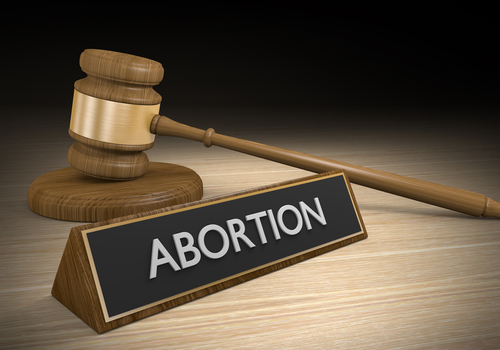In rare move, full 6th Circuit will hear initial arguments in abortion case; dissent blasts 'procedural hopscotch'

Image from Shutterstock.com.
In an unusual move, the full 6th U.S. Circuit Court of Appeals at Cincinnati will consider the constitutionality of a Tennessee abortion law without an initial ruling by a three-judge panel.
The 6th Circuit granted en banc review of the law, which requires a 48-hour waiting period before an abortion, in a short April 9 order.
Courthouse News Service, Law.com and the Volokh Conspiracy have coverage, while How Appealing links to the decision.
The full court agreed to hear the case after a federal judge struck down the law and enjoined its enforcement, and a three-judge panel refused to stay the judge’s ruling.
Dissenting Judge Karen Moore said the en banc majority had endorsed a “game of procedural hopscotch” by state officials, who sought to avoid review by a three-judge panel because they disliked the panel’s composition and its resolution of the stay motion.
By granting the petition for an initial hearing en banc, “this court has sent a dubious message about its willingness to invoke that extraordinary—and extraordinarily disfavored—procedure in ideologically charged cases,” Moore wrote.
Moore was on the panel that refused to stay the judge’s injunction that enjoined enforcement of the law. Another judge on the panel, Judge Amul Thapar, had disagreed with the decision, called for its immediate correction, and urged the appellants to seek the initial hearing en banc, Moore said.
“Appellants readily obliged,” Moore said.
Moore is an appointee of former President Bill Clinton, while Thapar is an appointee of former President Donald Trump. Moore’s dissent was joined by five other judges.
Moore said the 6th Circuit majority had “embarked on an unsettling course,” and its decision to hear the case en banc “tarnishes this court’s reputation for impartiality and independence.”
In his post at the Volokh Conspiracy, Josh Blackman, a professor at the South Texas College of Law in Houston, said the Federal Rules of Appellate Procedure allow an appeals court to bypass a three-judge panel and initially hear a case en banc, but it is rarely done.
He pointed out that Moore, however, did vote to hear a case initially en banc when a federal judge struck down an affirmative action policy at the University of Michigan Law School.
“There is some bitter history on the 6th Circuit en banc court,” Blackman wrote.



